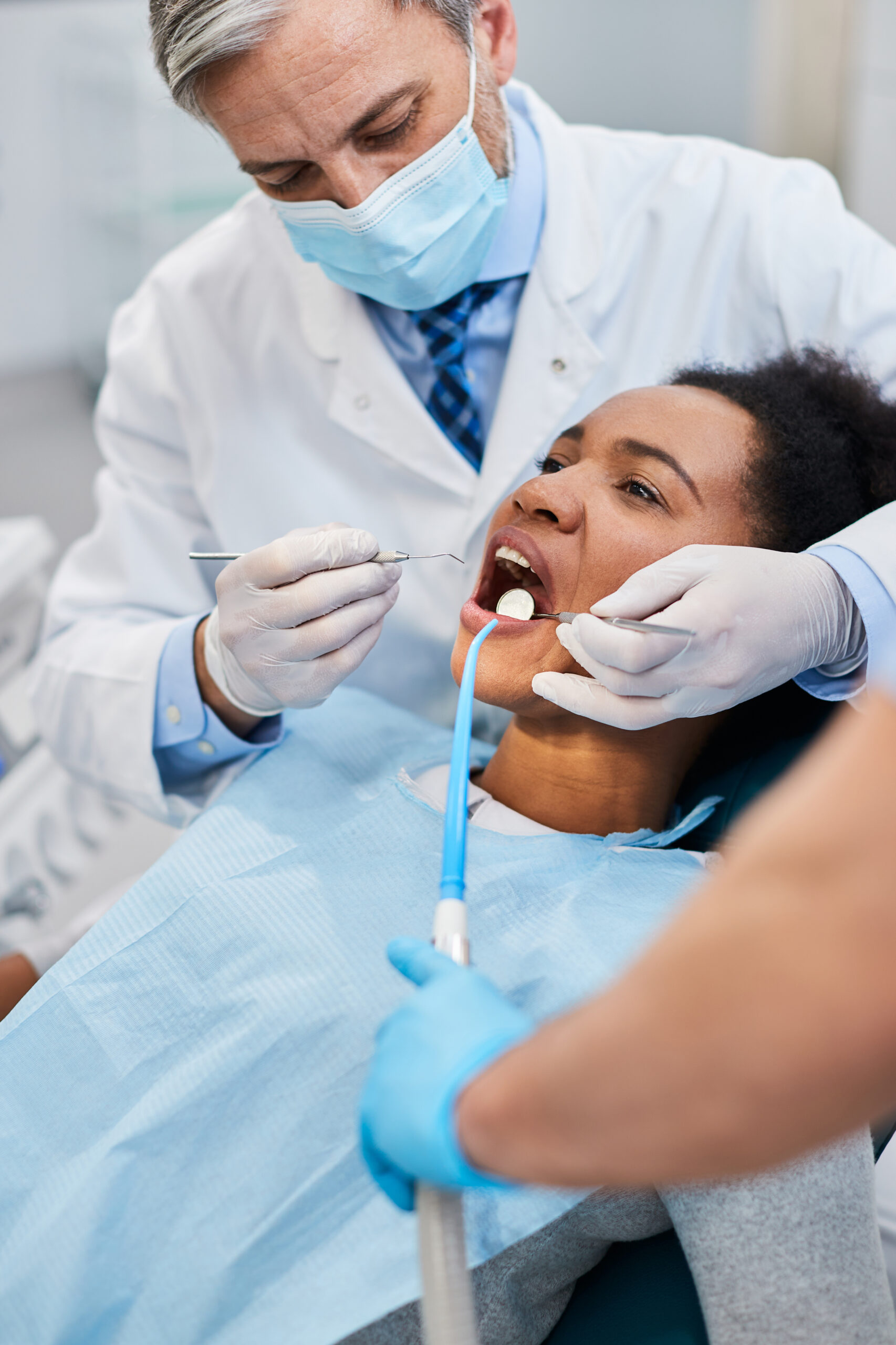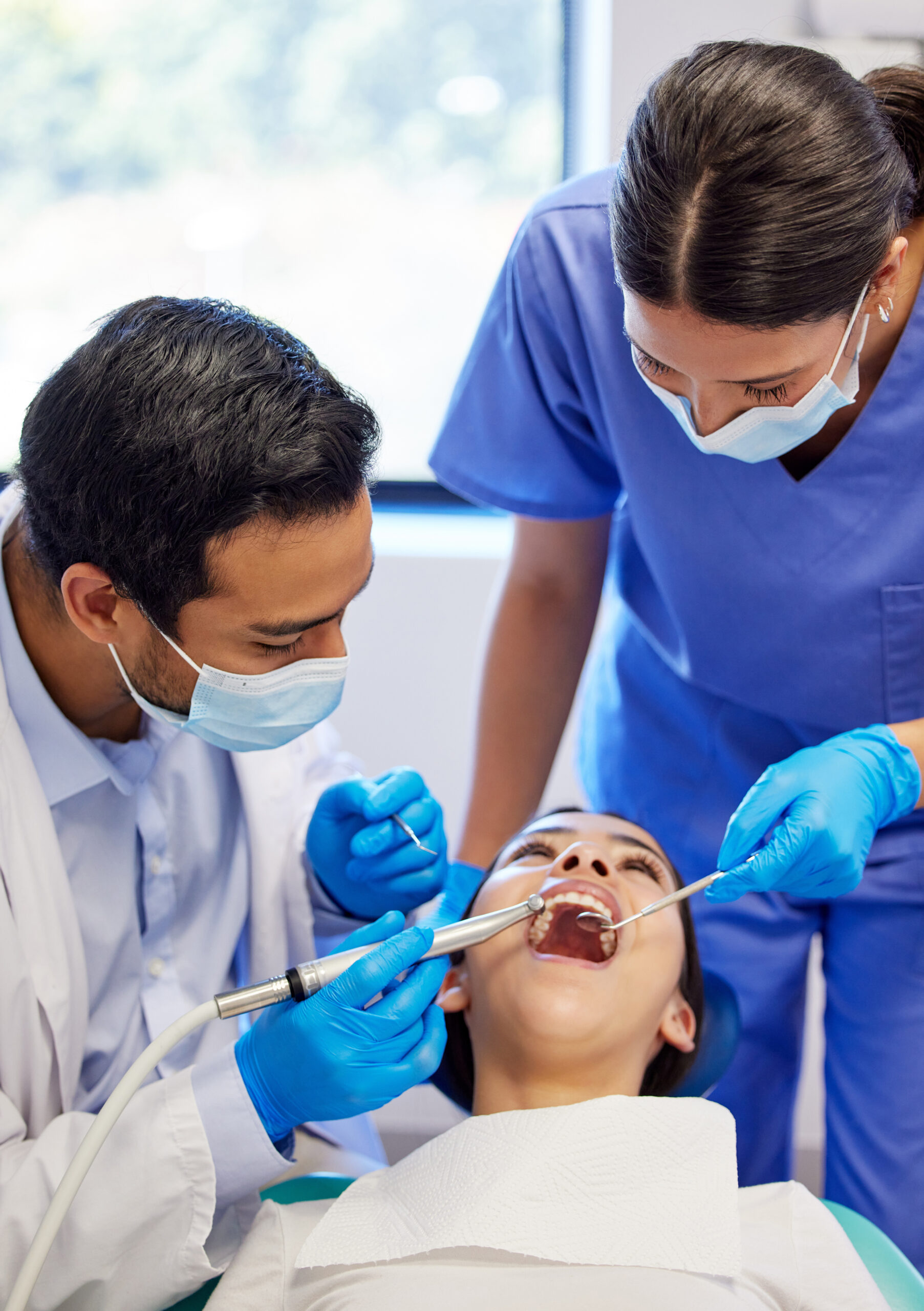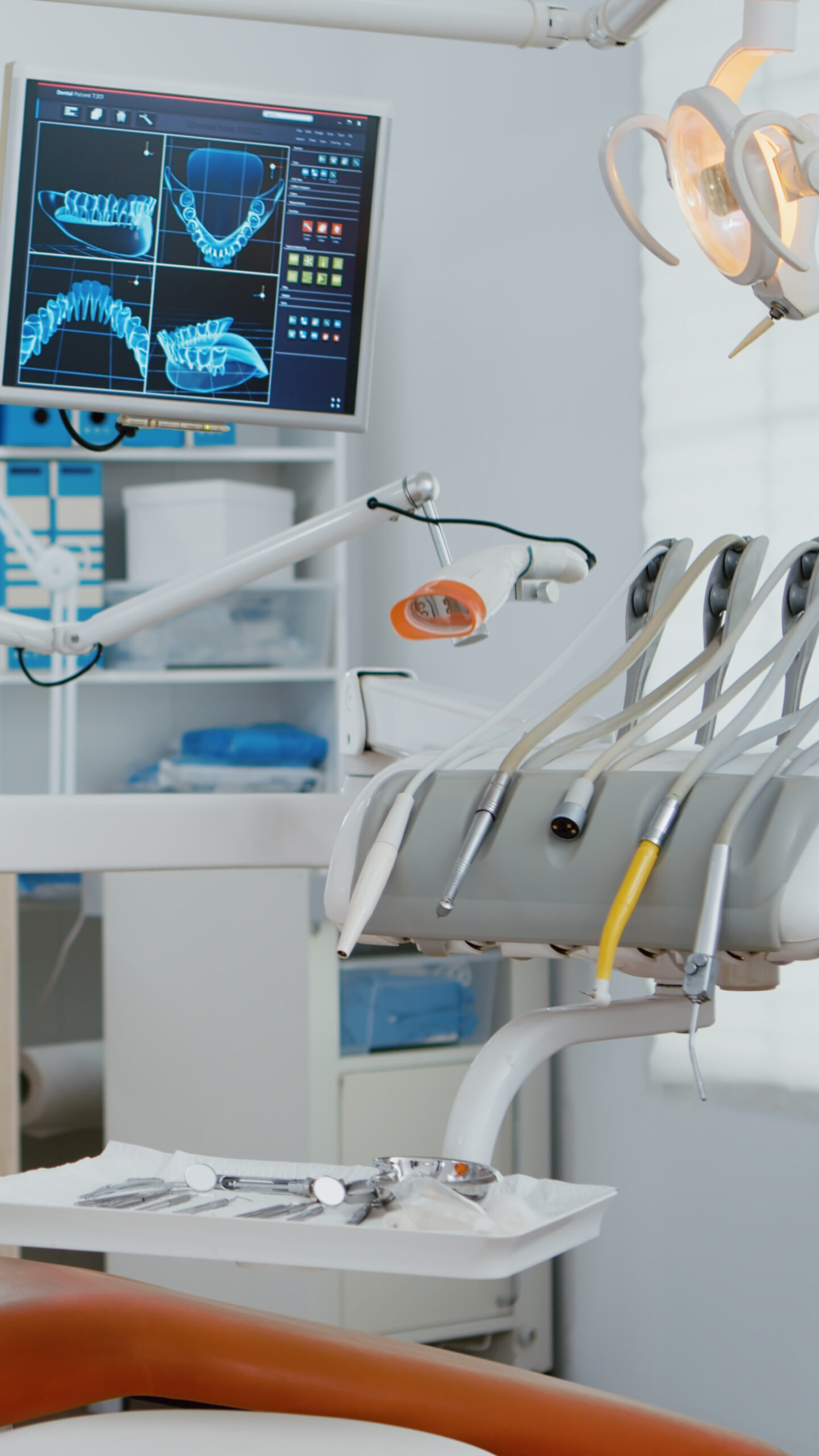
Severe Tooth Pain
Severe tooth pain often indicates infection, decay, or damage that requires immediate professional attention. Rinse your mouth thoroughly with warm salt water to help reduce bacteria and inflammation. Mix one teaspoon of salt in a cup of warm water and gently swish for 30 seconds before spitting out.
Take over-the-counter pain medication as directed on the package, but never exceed the recommended dosage. Ibuprofen is particularly effective for dental pain because it reduces both pain and inflammation. Apply a cold compress to the outside of your cheek for 15-20 minutes, then remove for 15-20 minutes. Repeat this cycle to help numb the pain and reduce swelling.
Avoid placing aspirin directly on the gums or tooth, as this can cause chemical burns to your soft tissues. Contact Irmo Dentistry immediately to schedule an emergency appointment, as tooth pain rarely resolves without professional treatment.
Dental emergencies happen. Get immediate professional care with our same-day emergency appointment availability.


Knocked-Out Tooth
Time is critical when dealing with a knocked-out tooth. The tooth has the best chance of being successfully replanted if you receive treatment within 30 minutes to one hour of the injury. Handle the tooth carefully by holding only the crown (the white part that shows in your mouth) and avoid touching the root.
If the tooth is dirty, rinse it gently with water for no more than 10 seconds. Do not scrub the tooth or remove any attached tissue fragments. If possible, try to gently reinsert the tooth into its socket, making sure it’s facing the correct direction. Bite down gently on a clean cloth or gauze to hold it in place.
If you cannot reinsert the tooth, keep it moist by placing it in a container of milk, your own saliva, or a tooth preservation solution if available. Never store a knocked-out tooth in water, as this can damage the root cells. Contact Irmo Dentistry immediately for emergency treatment.
Broken or Chipped Tooth
Save any pieces of the broken tooth if possible, as they may be able to be reattached. Rinse your mouth with warm water to clean the area and remove any debris. If there is bleeding, apply gentle pressure with a clean gauze pad until the bleeding stops.
For pain relief, take over-the-counter pain medication and apply a cold compress to the outside of your face to reduce swelling. If the break has created a sharp edge that is cutting your tongue or cheek, cover it with dental wax, sugar-free gum, or a piece of gauze to protect your soft tissues.
Avoid chewing on the affected side of your mouth and stick to soft foods until you can receive professional treatment. Contact our office as soon as possible, as even small chips can lead to bigger problems if left untreated.

Lost Filling or Crown
When a filling or crown comes out, the exposed tooth may be sensitive to temperature and pressure. Keep the crown if possible, as it may be able to be recemented. Clean the crown gently and try to slip it back over the tooth temporarily. You can use denture adhesive, dental cement from a pharmacy, or even toothpaste to help hold it in place temporarily.
Do not use super glue or other household adhesives, as these can damage the tooth and crown. If you cannot replace the crown, keep it safe and bring it to your emergency appointment. For lost fillings, temporary filling material from a pharmacy can help protect the tooth until professional treatment.
Avoid chewing on the affected tooth and avoid very hot or cold foods and beverages that may cause sensitivity or pain. Contact Irmo Dentistry promptly to have the filling or crown professionally replaced.

Dental Abscess or Infection
A dental abscess is a serious infection that can be life-threatening if left untreated. Signs include severe, persistent tooth pain, sensitivity to hot and cold, fever, swelling in your face or cheek, tender lymph nodes, and a foul taste in your mouth.
Rinse with warm salt water several times a day to help draw out infection and reduce bacteria. Take over-the-counter pain medication as needed, but seek professional treatment immediately. Do not attempt to drain the abscess yourself, as this can spread the infection.
If you develop facial swelling, fever, or difficulty swallowing, this indicates a serious infection that may require immediate medical attention. Contact Irmo Dentistry immediately, and if the office is closed and you have severe symptoms, consider going to the emergency room.
Soft Tissue Injuries
Injuries to the gums, tongue, cheeks, or lips can result in significant bleeding and pain. Clean the injured area gently with water and apply direct pressure with a clean cloth or gauze to control bleeding. If the bleeding doesn’t stop after 15 minutes of continuous pressure, seek immediate medical attention.
For cuts on the tongue or inside of the mouth, rinse with a mixture of salt and water to help prevent infection. Apply a cold compress to the outside of the mouth to reduce swelling. Avoid hot foods and beverages that may irritate the injured area.
Contact our office if the injury is severe, if bleeding cannot be controlled, or if you suspect the injury may require stitches.


Object Stuck Between Teeth
Never use sharp or pointed instruments to remove objects stuck between your teeth, as this can push the object deeper or damage your gums. Instead, try gentle flossing to remove the object, moving the floss carefully up and down and side to side.
You can also try rinsing vigorously with water or using a water flosser if available. If these methods don’t work, contact our office for assistance. Do not ignore objects stuck between teeth, as they can cause infection or damage if left in place.
When to Seek Immediate Medical Attention
Some dental emergencies may require immediate medical attention at a hospital emergency room rather than waiting for dental care. Seek immediate medical attention if you experience difficulty breathing or swallowing, severe facial swelling, high fever with dental pain, or uncontrolled bleeding from a dental injury.
These symptoms may indicate serious complications that require immediate medical intervention. You can still follow up with Irmo Dentistry for ongoing dental care once the immediate medical emergency is addressed.
REVIEWS SOURCED FROM GOOGLE
WHAT OUR PATIENTS SAY
John D.
Lorem ipsum dolor sit amet consectetur. Eleifend mi euismod urna imperdiet consectetur purus. Integer nunc tincidunt orci aliquam consequat tempus tortor enim aenean. Integer vestibulum faucibus amet odio sit sit.
John D.
Lorem ipsum dolor sit amet consectetur. Eleifend mi euismod urna imperdiet consectetur purus. Integer nunc tincidunt orci aliquam consequat tempus tortor enim aenean. Integer vestibulum faucibus amet odio sit sit.
John D.
Lorem ipsum dolor sit amet consectetur. Eleifend mi euismod urna imperdiet consectetur purus. Integer nunc tincidunt orci aliquam consequat tempus tortor enim aenean. Integer vestibulum faucibus amet odio sit sit.
Emergency Contact Information
Keep our office contact information readily available for dental emergencies. Program our number into your phone and keep a written copy in your wallet or purse. When you call with an emergency, be prepared to describe your symptoms clearly and follow any instructions provided by our staff. Remember that these instructions are temporary measures to help manage dental emergencies until you can receive professional care. Prompt professional treatment is essential for the best outcomes and to prevent complications.
